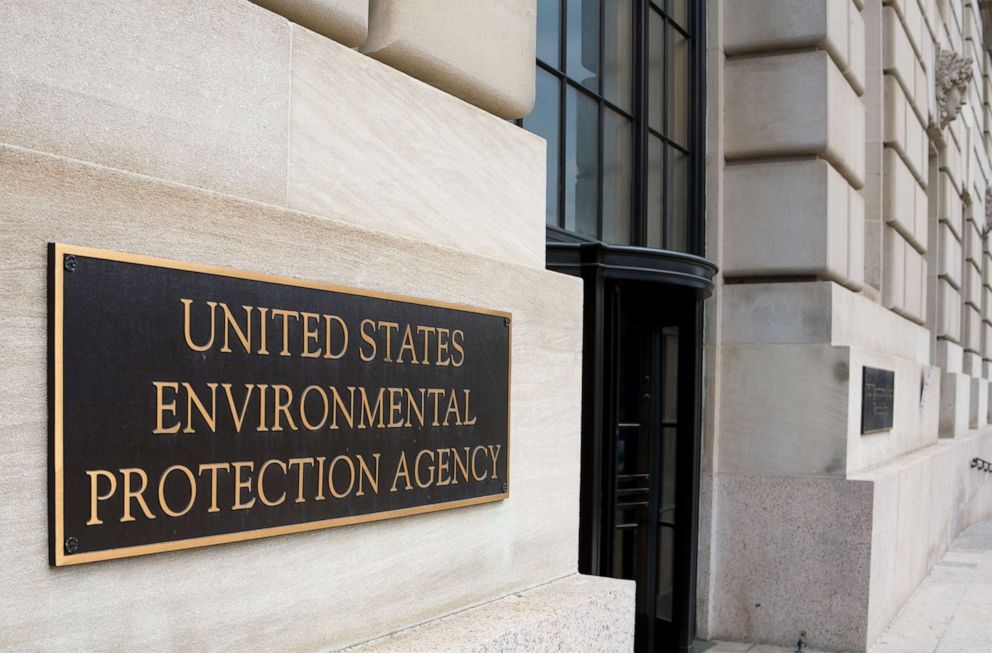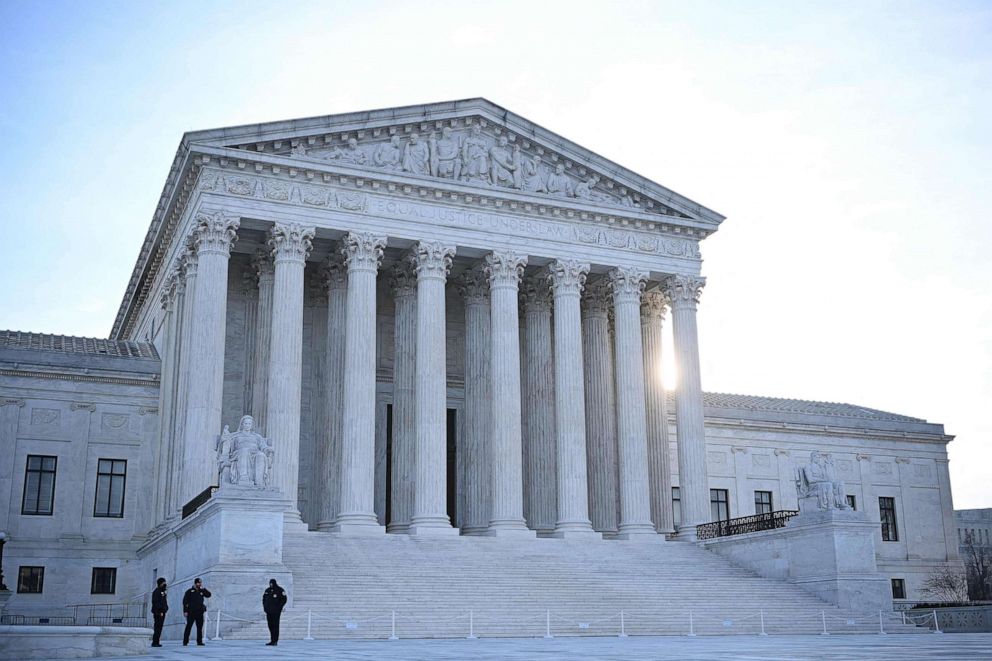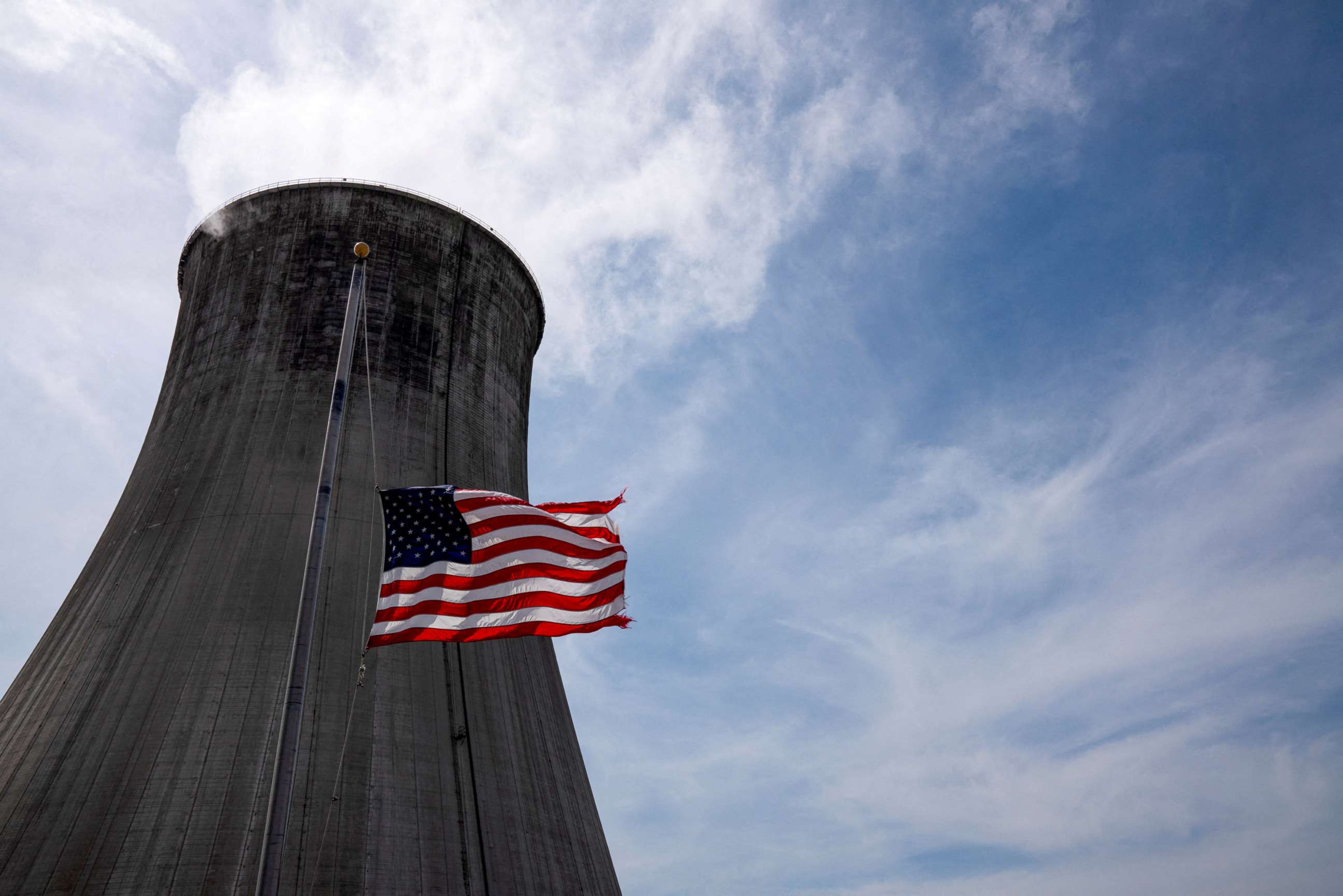Supreme Court weighs rollback of EPA's power to fight climate change
A decision in the case could impact U.S. progress on steep emission cuts.
As the impacts of global climate change exact an increasingly dire human and economic toll, the U.S. Supreme Court on Monday is considering a major challenge to the power of the Environmental Protection Agency to combat greenhouse gas emissions from thousands of American power plants.
The justices are hearing oral arguments in a case -- West Virginia v. EPA -- that pits major coal and mining companies and Republican-led states against the Biden administration, power utilities and public health groups that see EPA's authority as critical for curbing the climate crisis.
The outcome of the case could determine whether the U.S. will be able to meet a government goal of cutting carbon pollution by 50% over the next eight years and shifting entirely to clean energy sources by 2035, experts say.
"We need every tool in the toolbox to address climate change," said Vickie Patton, general counsel of the Environmental Defense Fund. "An action [by the Court] here is a real setback."
The landmark Clean Air Act of 1970 charged the EPA with protecting human health from dangerous airborne contaminants, which the Supreme Court has twice affirmed to include greenhouse gasses.
The law lets the agency craft pollution limits based on the "best system of emission reduction" available, but there is disagreement over whether the law prohibits consideration of measures "outside the fence line" of a particular plant, such as shifting to alternative sources of power generation or emission trading programs.
The U.S. power sector is the nation's second-largest source of greenhouse gas emissions.

Plaintiffs in the EPA case claim the agency is seeking to "reshape the power grids and seize control over electricity production nationwide," according to court documents, a characterization the government disputes.
The justices will first need to decide whether there's even a live dispute worth adjudicating. While the case originated as a challenge to the Obama administration's 2015 Clean Power Plan, that policy was subsequently put on hold and has never taken effect.
The states and coal companies argue that a lower court decision, if allowed to stand, effectively empowers the EPA to threaten entire industries and tens of thousands of American jobs. The Biden administration says the warnings are premature, noting its emission guidelines have not yet been published, much less enforced.
"Petitioners are seeking a ruling on what EPA might do in the future, but federal courts do not have jurisdiction to decide cases on what could happen," said Andrew Restrepo, a senior attorney with the Sierra Club. The states and coal companies "do not and cannot explain how they would be injured."
The Supreme Court showdown comes the same day the United Nations Intergovernmental Panel on Climate Change warned in a new report of impending catastrophic harms from the unchecked rise in carbon pollution.
"What we're arguing about is the scope of the means, or the way the [EPA emissions] standard can be constructed," said David Doniger, an attorney with the National Resources Defense Council and former EPA lawyer. "We want EPA to be able to look at a range of measures beyond efficiency tuneups" at power plants.

A decision against the agency could also have implications for the ability of other government agencies to set health and safety regulations across entire sectors of the nation's economy, legal analysts said.
Conservative legal scholars, including several members of the high court, have long argued that major administrative rules governing American life must be specifically approved by Congress in order to be legal.
Last month, the justices blocked the Occupational Health and Safety Administration's vaccine-or-test mandate for large employers on those grounds, while last summer the court rolled back the CDC's pandemic eviction moratorium as an illegal overreach.
"If there are enormous decisions that have vast political and economic significance, Congress -- if they want an agency to deal with it -- should speak clearly to that issue," said Jeff Holmstead, a former EPA official who served during the George W. Bush administration and has represented clients challenging recent EPA emissions regulations.
There are more than 3,300 fossil fuel-fired power plants in the U.S., including 284 coal-fired facilities, according to the U.S. Energy Information Agency. An estimated 1.7 million Americans work in fossil fuel industries, from mining to pipeline construction to electricity generation.
In a landmark 2007 decision, Massachusetts v EPA, the Supreme Court by a 5-4 vote authorized the agency to regulate greenhouse gasses as air pollutants under the Clean Air Act. Four years later in American Electric Power v. Connecticut, the justices again affirmed that "Congress delegated to EPA the decision whether and how to regulate carbon-dioxide emissions from power plants."
Doniger said if the Court rolls back that authority a "huge swath" of the regulatory state could potentially be upended by extension.
"Legislation that people rely on to structure their businesses or protect themselves from predatory business practices, fraud in commercial transactions, in the securities market -- all of that would seem to be imperiled if this is imperiled," he said.

In a friend-of-the-court filing in the case, a coalition of medical groups, including the American Medical Association, American Academy of Pediatrics and the American College of Physicians have implored the justices to take a broad view.
"Climate pollutants' most grievous harms beset children and families, pregnant women, people over 65 and communities of color and of low income," they wrote.
"The Court should be mindful of Congress's decision to provide EPA regulatory authority to address this type of threat to public health. Any retrenchment in the scope of that authority would inflict further harm to the health of current and future generations."




